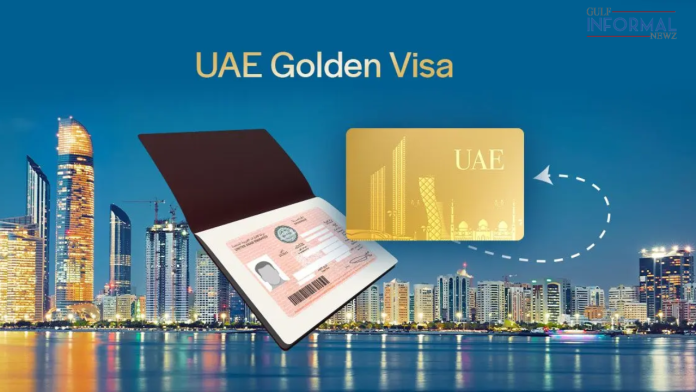With property investments helping residents get the 10-year Golden Visa in the UAE, they are increasingly looking to build their home and life in communities.
According to a white paper released by real estate marketplace Property Finder, there has been a marked shift in the property landscape, which is becoming increasingly community-oriented.
The UAE has made several changes to its residency laws in recent years. These include long-term residency visas for investors, entrepreneurs, and exceptional talents; and multiple-entry visit visas. According to experts, with people either settling in the country for good or coming back several times a year, they are looking for a sense of belonging here.
“People have a deep social connection to a community,” said Michael Lahyani, founder and CEO of Property Finder. “Especially that they are preparing to stay much longer in the UAE. We no longer have (two- or) three-year visas. Now, it’s 10-year (Golden) Visas. People know they’re going to be here for a decade, probably two and maybe forever. Therefore, it’s important to build their own community here.”
In his foreword to the whitepaper, Lahyani lists “culturally integrated community living” as the biggest ask from a majority of respondents to a survey the company conducted. “Even as new communities are developed, seemingly in the middle of undeveloped desert areas, we find that they become integrated into the city in no time as the infrastructure keeps pace. Increasingly, we notice that the starting point for a consumer is not a stand-alone building but a multi-faceted neighbourhood, which creates a sense of home right from inception. Spacious living areas, water views, greenery, sustainability, and conveniences are all part of the wish list today.”
Home away from the city
For Dubai resident Sadiqa Alam, moving from their home in the heart of Deira after 17 years to a gated community in Meydan was a tough decision. However, she is glad she made it.
“My children are 9 and 11 years old and the move has made a huge difference to them,” she said. “Every afternoon they go cycling within the community or they go to the basketball court to play. When we were living in Deira, they did not have an option like that.”
According to Sadiqa, the move has been very beneficial for them as well. “There is very little traffic and the community is very peaceful and quiet,” she said. “It is a fairly new community so the amenities are just coming up. I do miss the convenience of Deira but we are really enjoying our lives here, especially my children.”
Real estate agent Shabna Ibrahim said one of the most transacted areas in Dubai is a gated community that’s far from the city centre. “There is a simple reason for it. No matter what amenities your building or villa has, it doesn’t compare to a community living. There are no parks, walkways or common play areas. The community vibe is not there.”
Mixed-use communities
Property Finder research showed that mixed-use communities with facilities planned around metro connectivity are preferred by end users.
“These walkable and cycle-friendly neighbourhoods outperform the wider market in Dubai, showing price increases of 26.7 per cent on average, compared to an average overall increase in all properties of 24.1 per cent between Q1 2010 and Q4 2022,” the company wrote in its whitepaper. “Properties in these developments also command as much as 11 per cent higher rental growth even while the average rental rates of all properties may have declined.”
Key mixed-use neighbourhoods in Dubai include Palm Jumeirah, Emirates Hills, Al Barari, Jumeirah Golf Estates, Jumeirah Bay Island, Emaar Beachfront, Downtown, Business Bay, District One, and Dubai Hills Estate.
In Abu Dhabi, locations such as Saadiyat Island, Reem Island, Al Raha, Al Bateen, and Abu Dhabi Gate City offer “not only exclusive lifestyle”, but are also home to gated communities such as Nalaya Villas, Jawaher Al Saadiyat, Al Raha Golf Gardens, the Hills, and Mangrove Village, among others.
Green open spaces
According to Shabna, Dubai residents are willing to move further away from the city in order to enjoy community living. “Even if they have to drive slightly longer or the space is not as convenient as an apartment, people are willing to make the sacrifice,” she said. “They want the open spaces, the jogging tracks and everything else that a community has to offer. Especially those with children because it is much safer for kids to go out and play on their own or bike around the community because it is gated.”
The findings of the white paper – which was prepared in collaboration with other industry experts – show that some communities perform better than others. According to the report, communities that have properties with spacious layouts that can be personalised are very much in demand. Walk-able and cycle-friendly neighbourhoods outperform the wider market in Dubai, in terms of popularity and price. Consumers are also demanding for affordable as well as sustainable living spaces.
“There is a need for different price points,” said Cherif Sleiman, chief revenue officer at Property Finder. “People should not be of a certain economic level to enjoy the amenities of community living. That goes into the planning of future communities. It also needs to cater to the needs of families of different sizes and different nationalities. So, when planning for the future, there needs to be a range of everything from studios to big mansions all in a mixed-use community where everything is easily accessible to its residents.”




